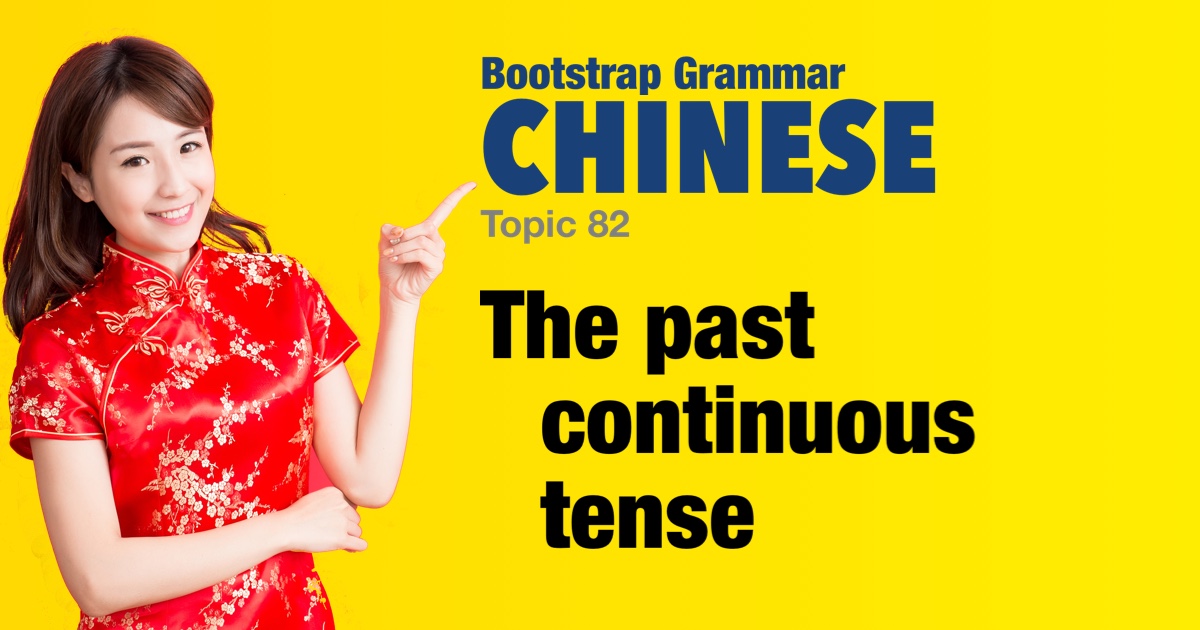Chinese grammar - The past continuous tense |
|||
|
|||
The past continuous tense expresses an action that was ongoing in the past. This tense emphasizes that the action was ongoing and not necessarily completed. — This is like 'was doing' in English. Chinese doesn't have a specific grammatical tense for this; instead, it's conveyed through context, especially by using time words that indicate the past - Time words such as 昨天 (zuótiān) meaning 'yesterday' and 上个星期 (shàng ge xīngqī) meaning 'last week' The pattern is: [subject] + [past time word] + [verb] + [object]. Note that actions completed in the past typically require the completed action marker 了 (le) as we saw previously. |
| Examples: | |
|
我昨天在图书馆读书。
wǒ zuótiān zài túshūguǎn dúshū. I was reading in the library yesterday.
|
|
|
他上个星期在公司工作。
tā shàng ge xīngqī zài gōngsī gōngzuò. He was working at the company last week. |
|
|
你前天为什么没来上课?
nǐ qiántiān wèishéme méi lái shàngkè? Why weren't you coming to class the day before yesterday? |
|
|
我们上个月在海滩游泳。
wǒmen shàng ge yuè zài hǎitān yóuyǒng. We were swimming at the beach last month. |
|
|
你以前在哪里工作?
nǐ yǐqián zài nǎlǐ gōngzuò? Where were you working before? |
|
|
我昨天在写信。
wǒ zuótiān zài xiě xìn. I was writing a letter yesterday. |
|
|
她上个月在学中文。
tā shànggeyuè zài xué zhōngwén. She was studying Chinese last month.
|
|
|
我们上星期在准备考试。
wǒmen shàng xīngqī zài zhǔnbèi kǎoshì. We were preparing for the exam last week.
|
|
|
他昨天在开会。
tā zuótiān zài kāihuì. He was in a meeting yesterday. |
|
|
他们昨晚在看电影。
tāmen zuówǎn zài kàn diànyǐng. They were watching a movie last night.
|
|
|
我早上在跑步。
wǒ zǎoshang zài pǎobù. I was running this morning.
|
|
|
你上周在做什么?
nǐ shàng zhōu zài zuò shénme? What were you doing last week? |
|
|
孩子们昨天在公园里玩耍。
háizimen zuótiān zài gōngyuán lǐ wánshuǎ. The children were playing in the park yesterday.
|
|
|
她昨天晚上在做饭。
tā zuótiān wǎnshang zài zuò fàn. She was cooking dinner last night. |
|
|
我们昨天在讨论这个问题。
wǒmen zuótiān zài tǎolùn zhè ge wèntí. We were discussing this issue yesterday. |
|
 |
|



